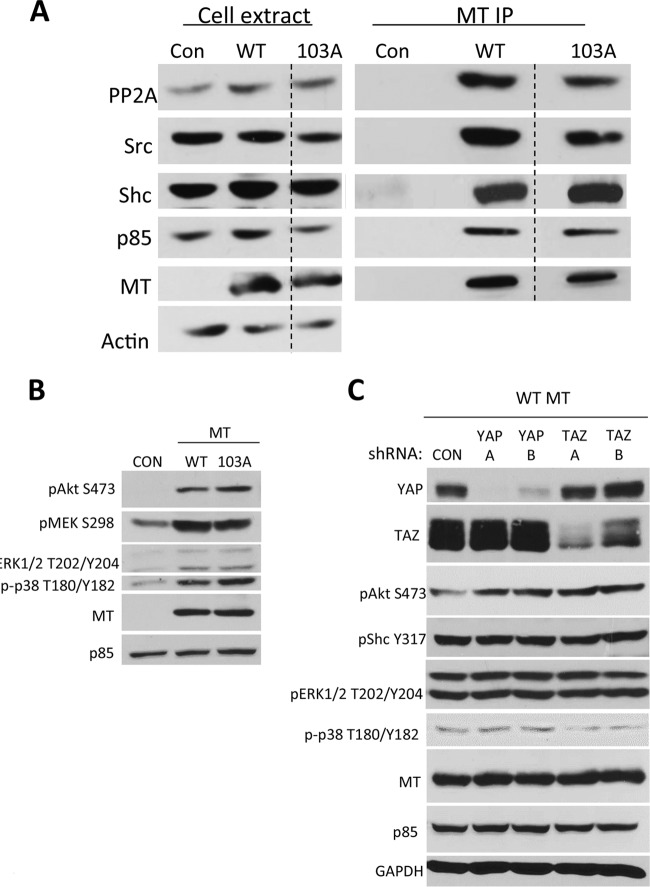FIG 3.
Ras and PI3K/Akt signaling. (A) MT-103A is wild type for the recruitment of known MT-binding partners. NIH 3T3 cells were exposed to doxycycline for 24 h to induce the expression of EGFP or MT. MT was immunoprecipitated with the MT-1 antibody. After SDS-PAGE, Western blotting was carried out to detect PP2A, Src, Shc, p85, MT, and actin. Actin served as a loading control. (B) MT-103A is wild type for the activation of Ras and PI3K/Akt signaling. NIH 3T3 cells were exposed to doxycycline for 24 h to induce the expression of EGFP or MT, and serum was withdrawn for the last 16 h of induction. After SDS-PAGE, Western blotting was conducted to detect the phosphorylation of Akt S473, MEK S298, Erk1/2 T202/Y204, and p38 T180/Y182 as well as total MT and p85. p85 served as a loading control. (C) Knockdown of YAP or TAZ preserves wild-type MT signaling through Ras and PI3K/Akt. NIH 3T3 cells stably expressing doxycycline-inducible wild-type MT and either control shRNA, YAP shRNA, or TAZ shRNA were induced to express the MT protein by exposure to doxycycline for 24 h, and serum was withdrawn for the last 16 h of induction. After SDS-PAGE, Western blotting was conducted to detect the phosphorylation of Akt S473, Shc Y317, Erk1/2 T202/Y204, and p38 T180/Y182 as well as total YAP, TAZ, MT, p85, and GAPDH (glyceraldehyde-3-phosphate dehydrogenase). p85 and GAPDH served as loading controls.

